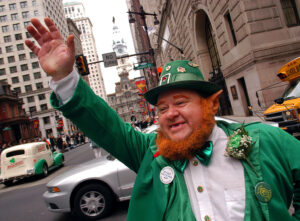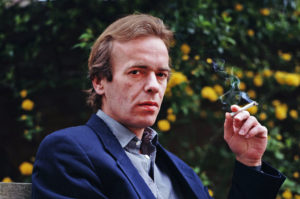Not many films are panned even before they’ve gone into production. Such has been the fate, though, of yet another version of Wuthering Heights. Already derided as melodramatic trash, some reviewers are wondering whether the director, Emerald Fennell, has actually read the book.
Whether she has or hasn’t, you can’t pluck the tormented love story of Heathcliff and Catherine out of its complex context without inflicting some serious damage on Emily Brontë’s fiction. The novel is about a lot more than love. In its intensely materialist way, it also concerns the conflict between nature and culture, labour and gentility, power and rebellion, struggles over property and inheritance, the relations between the English landowning class and the small farmers or yeomanry, and a good deal more besides.
How do you put these issues on screen? You can’t. You can tell a story entitled “Cathy and Heathcliff”, but it isn’t what Emily Brontë wrote. Our own civilization is obsessed by sex but bored by yeomen and landowners. The background to the Brontës is the world of poverty, political repression and smouldering social rebellion known as the Hungry Forties. The sisters would have seen a good deal of destitution on their own doorstep, and were alive to the turbulent times in which they lived. They were shrewd, hard-headed, lower-middle-class Yorkshire women, not three weird sisters lost in erotic fantasy in the moorland mists.
Nor is Wuthering Heights what you might call a romance. In fact, you might even call it an anti-romance. The relationship between the two lovers, if you can call it that, is implacably impersonal. There’s a relentless, elemental, even brutal quality to it, which lies much deeper than mere feeling. We are no longer in the mannered world of Jane Austen. Heathcliff is no Hugh Grant but a pitiless exploiter. Beneath his flinty exterior beats a heart of stone. If some readers have been seduced by him, it is because everyone likes a rogue. In his dealings with Catherine, what Freud calls eros and thanatos, sexuality and the drive for extinction, are impossible to disentangle. Like Jane Eyre, the best-known work of Emily’s sister, Charlotte, the novel is shot through with sado-masochism. If this is love, then there’s nothing in the least pleasant or affable about it. One can’t even speak of it as sexual. It’s more like a fight to the death — an absolute, remorseless, inhuman need for each other with a fierce undertow of violence, one which has little to do with tenderness or affection and perhaps refuses to be placated even in the grave. Almost uniquely, we have a Victorian novel which doesn’t end on a genially upbeat note with that magical solution to all human heartache: marriage.
This is an important milestone in the evolution of the English novel. With the exception of Samuel Richardson’s great 18th-century work Clarissa, which few have read because it’s a million words long, hardly any English novel before Wuthering Heights ends on a tragic note. Even Wuthering Heights is ambiguous in this respect: do Catherine and Heathcliff find fulfilment beyond the grave or not? Then, from the fiction of Thomas Hardy to our own time, the norm becomes a tragic (or at least non-comic) ending. There are a number of reasons for this seismic literary shift, among which is the fact that the Victorians (who lived in perpetual fear of revolution) saw a link between gloom and political disaffection. Part of the purpose of art was to edify its audience, and edified audiences were less likely to tear up the paving stones to build barricades. Charlotte Brontë conforms to this demand in Jane Eyre, blinding and disfiguring Rochester in order to punish his bigamy and bring him, chastened and repentant, to a marriage in which Jane is definitely the boss. Emily bravely refuses this conventional strategy.
Wuthering Heights may tacitly suggest a reason for the strangely asexual nature of the bond between its protagonists. Heathcliff is brought home one night by Cathy’s father and dumped unceremoniously on the family, but he might be “family” even so. He may be old Earnshaw’s bastard child, in which case he and Catherine are half-siblings, and their non-sexual relation springs from an unconscious incest taboo. It’s hard otherwise to see why this gruff yeoman farmer, who doesn’t seem given to spontaneous acts of charity, should give house-room to such an unprepossessing little brat. We shall, alas, never know. Anyway, the intense unity of selves which Catherine and Heathcliff feel, which is hard to speak of as a relationship since relationship implies otherness, works even without this incestuous subtext.
Heathcliffe’s ethnic origins are hard to pin down — hence the pearl-clutching at the news of Fennell casting a white actor in the role. Variously labelled as a gypsy, a Lascar or Indian sailor, a Creole, and a Spanish castaway, it’s hard to know how dark he is, or how much of it is pigmentation and how much the fact that he needs a bath. The fact is, his origins are deliberately made obscure, to highlight his status as an outsider in the tight-knit patriarchal community of the Heights. What kind of outsider doesn’t really matter. Whether he comes from Bournemouth or Borneo is less important than the fact that he is cruelly treated, and thus turned into a monster who seeks to wreak vengeance on those who have abused him. As W.H. Auden writes, “Those to whom evil is done/ Do evil in return.”
Even so, there are a number of clues buried in the story to Heathcliff’s actual identity. One can make a strong case that he is Irish, as Emerald Fennell is to judge by her surname; and whether the Irish are black or white, as well as orange or green, wasn’t clear to the Victorian middle-class mind. They are of course formally “white” — whatever that means — but they were consistently portrayed at the time (in Punch cartoons, for example) as dark, dangerous and chronically rebellious. They were perceived, so to speak, as spiritually dark-skinned, the Blacks of the British isles.
Why might Heathcliff hail from John Bull’s other island? Well Wuthering Heights was written as the Great Famine was beginning to grip Ireland, resulting in a million dead and a further million driven into exile. As John Lennon and Paul McCartney illustrate, a lot of the latter group ended up in Liverpool, a city to which the Brontës’ ill-starred alcoholic brother Branwell took a trip in 1845 and perhaps reported to his sisters what he had witnessed there. A few months later, Emily began writing her novel. By 1847, 300,000 destitute Irish immigrants had landed in the port. Images of them as starving scarecrows dressed in rags and with an animal-like growth of black hair appeared in various English magazines. Earnshaw picks up off the Liverpool streets “a dirty, ragged, black-haired child” who speaks a kind of “gibberish”. Many of the children who washed up in Liverpool would have been Irish speakers. In fact, the Famine almost dealt the language the coup de grace, since it was spoken mainly by the poor, and the poor were mostly the ones who died or emigrated. The Irish language didn’t in fact die, but nor did it ever fully recover. Most Irish people speak some Irish in the way that most educated English people speak French, i.e. very badly.
Consider, too, the fact that the name “Brontë” was originally “Brunty”, which like most surnames ending in y (aigh in Irish) is an Irish name. The sisters’ Right-wing clerical father Frenchified it in his quest for respectability in England. Brontë country in Ireland isn’t the Yorkshire moors around Haworth but the region of County Down from which Patrick came. When the gin-soaked, stage-Irish Branwell displeased the local people, they burnt an effigy of him with a herring in one hand and a potato in the other. Branwell was a loyal supporter of the Irish politician Daniel O’Connell, leader of the greatest reform movement of 19th-century Europe.
So assuming, therefore, that Heathcliff really is Irish, perhaps it’s fine for a white actor to represent him. But why are we even thinking in these terms? Why cling to such a naive view of dramatic representation? For to think that every aspect of an actor must accurately represent every aspect of the character he or she plays is absurd. Margot Robbie, who will play Catherine, represents her accurately in so far as she’s a woman, but not in so far as she’s quite a bit older than Catherine is in the book. She may also have a differently shaped nose. Nobody imagines that every feature of an actor’s performance is in this sense representational. If an actor trips and falls over, is it an accident? Or is it required by the script?
On this view, then, a black actor can play a white figure because his or her ethnicity need not be representational, any more than their height or weight need be. And white actors can play black individuals because we, the audience, provisionally bracket off their ethnicity and don’t take it as representational. But obviously this means that white actors muscle in on most of the parts.
Surely, though, ethnicity is too important an issue to be bracketed off. And actors from minorities have been cut a rough deal for far too long. So we should aim for a situation in which ethnic minority actors can play white individuals, which means having their actual skin colour temporarily disregarded by the audience without this constituting a put-down. And, indeed, without the audience thinking they are being told that, say, Julius Caesar or Elizabeth I really were black. It also means white actors being able to play black or brown individuals without the audience seeing imperial overtones.
For all this to happen, though, we will need change not just in the theatre or film industry but in society at large. And the signs, as the far-Right continues to rise throughout the Western world, are not propitious.
Disclaimer
Some of the posts we share are controversial and we do not necessarily agree with them in the whole extend. Sometimes we agree with the content or part of it but we do not agree with the narration or language. Nevertheless we find them somehow interesting, valuable and/or informative or we share them, because we strongly believe in freedom of speech, free press and journalism. We strongly encourage you to have a critical approach to all the content, do your own research and analysis to build your own opinion.
We would be glad to have your feedback.
Source: UnHerd Read the original article here: https://unherd.com/




